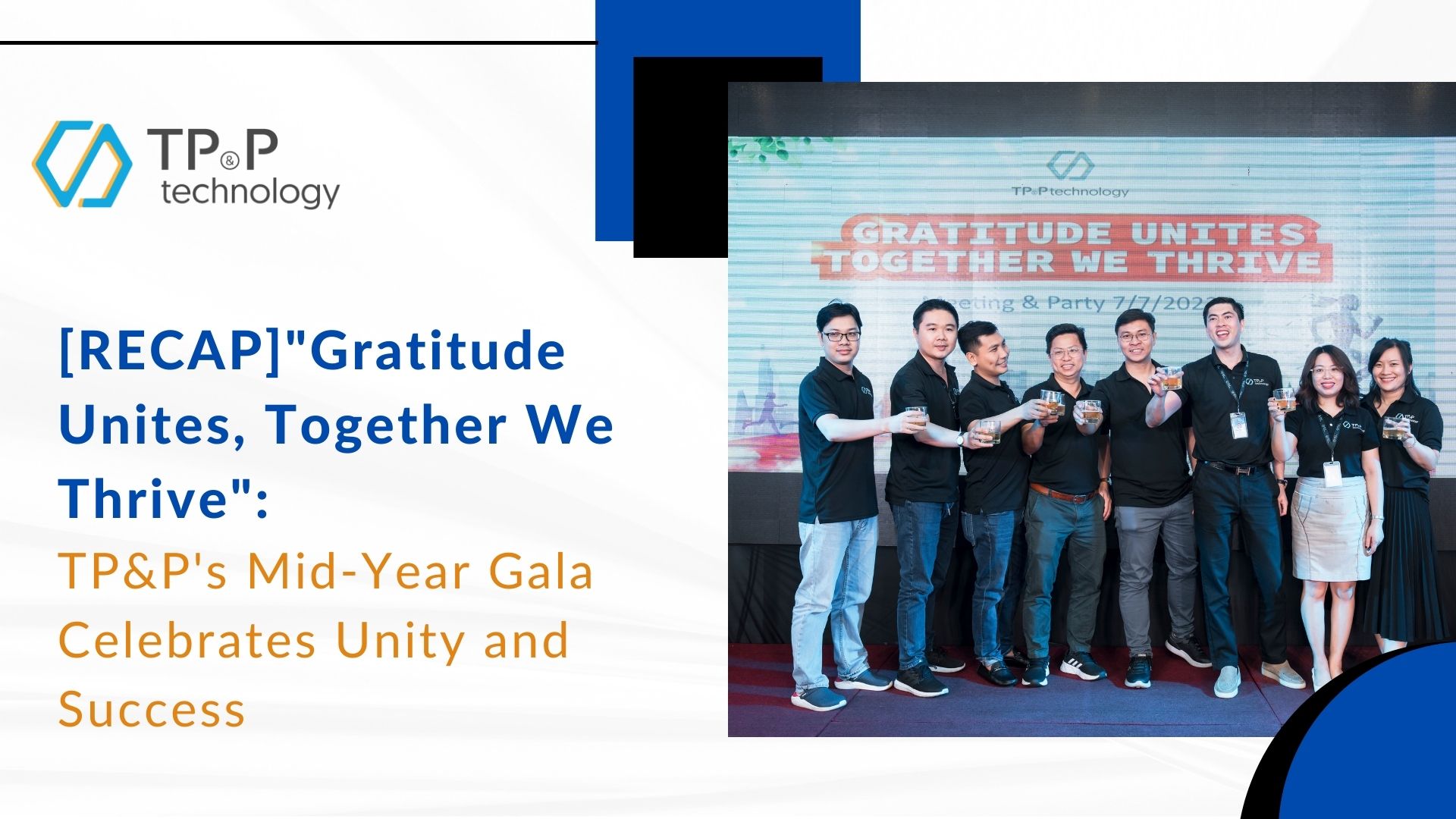
20 Important Factors To Consider When Evaluating A New Technology Vendor
Starting a new software project can be an exhilarating moment for your company, but it can also be daunting. You may have high hopes that the software will bring cost savings, set you apart from competitors, or transform your industry. The potential benefits are endless.
However, selecting a software company can be a challenging task. As you begin your company's project, it's crucial to identify the right partner to meet your needs. You'll need someone with a proven track record, technological expertise, and a desire to establish a solid working relationship. Essentially, someone who will produce a fantastic product for your company.
To assist you in finding the perfect software development partner, it's critical to carefully consider these essential factors outlined below. By prioritizing each area, you'll be better equipped to select a software company and kickstart your project.
1. Flexibility
Choose adaptable technology partners to integrate and scale solutions with existing systems, support growth and stay competitive in a constantly changing business landscape. This strategy prioritizes long-term value and returns on investment while enabling companies to keep pace with industry trends.
2. Swiftness
While a vendor's solution may seem complete at first, missing features can become apparent. To avoid delays in critical updates, it's essential to ensure that the vendor's velocity matches that of the business. This is particularly important for tech-reliant businesses looking to stay competitive. By assessing vendor velocity, businesses can remain agile and competitive.
3. Time-To-Release
When choosing a partner, it's important that you pay close attention to their onboarding speed. This is how quickly they can get up to speed on your business processes and make any necessary adjustments or integrations to their technology to fit your specific needs. This is a critical factor to consider when evaluating potential partners, as a slow onboarding process can lead to delays and difficulties down the line.
4. Security
Make sure to check the security, certifications, and attestations of any new partners you work with. Every time we interact with them, there's a chance that they could expose our company to new risks. It's our job to safeguard our data and infrastructure from harm, so it's crucial that we vet any potential partners before working with them. Otherwise, partnering with them could put us at greater risk.
5. Credibility
As a software devlopment outsourcing firm, it's crucial for us to examine every partner, vendor, or solution we recommend with great care. We conduct a comprehensive security analysis and review client feedback and service level agreements to ensure the solutions meet our high standards. We also evaluate the vendor's service quality and ensure they align with our values and reputation as their service directly reflects our brand image.
6. Commitment To Accessibility
We're living in a time of rapid technological advancement, which is pretty exciting. However, it's important that we work with technology companies that share our values around inclusivity. Everyone, including those with disabilities, should have the chance to use and benefit from the latest and greatest technology.
7. Technical Proficiency
When searching for a software consulting partner, it's important to find one that has a strong track record of success in the particular area of expertise needed. A partner with deep industry knowledge, a good understanding of industry regulations, and proven experience in successful projects is essential. It's also important to choose a partner who collaborates well with internal teams to ensure success. By selecting a knowledgeable and collaborative consulting partner, companies can achieve their goals and stay competitive in their industry.
8. Built-In Connections And Verified Suitability
When it comes to selecting new technology, one of the most important things to consider is how well it integrates with existing systems. This "meta consideration" includes a number of key factors that are critical to the success of any new technology implementation, such as security, supportability, scalability, reliability, and resiliency.
Ensuring that new technology is compatible with existing systems can help to minimize the risk of disruptions and downtime, as well as reduce the overall cost and complexity of the implementation process. By taking the time to thoroughly evaluate and validate integrations and compatibility with host systems, businesses can gain greater clarity on the scope of their projects and minimize the potential for issues or pain points down the line.
9. Communication
To avoid misunderstandings and setbacks, it's essential to choose a software development partner with strong communication skills. Clear and transparent communication is key when issues arise, and you'll want a partner who can keep you informed every step of the way. You should also consider their communication tools and language capabilities to ensure effective communication across all barriers. By setting clear expectations and regularly communicating with your software development partner, you can ensure that your project runs smoothly and achieves its goals.
10. How The Management Of PartnerShips Is Handled
When considering a tech vendor, it's crucial to evaluate how they'll manage the partnership. This includes examining what analytics, reporting, and data will be provided, as well as what standards are in place to ensure responsiveness. Vendors who address these questions upfront are establishing a foundation for long-term success. A productive partnership is more likely when both parties are aligned on managing the technology and addressing any issues that arise.
11. Success rate in delivery
When considering a tech vendor, it's crucial to evaluate how they'll manage the partnership. This includes examining what analytics, reporting, and data will be provided, as well as what standards are in place to ensure responsiveness. Vendors who address these questions upfront are establishing a foundation for long-term success. A productive partnership is more likely when both parties are aligned on managing the technology and addressing any issues that arise
12. How Particular Business Requirements And Outcomes Are Met
Clearly defining the scope of a software project is crucial to its success. Poorly defined project scopes can lead to miscommunication and project failures. Before contacting software development companies, it is best to gather input from colleagues and fill in any missing areas. Good software partners will collaborate to create the most complete project scope possible, ensuring accurate cost estimates and higher client satisfaction. It is important to be cautious of companies that do not want to define the project scope, as they may try to bill hidden fees. By defining the project scope upfront, businesses can avoid delays and budget overruns.
13. Technology stack and testing
A good software development partner should define the technology stack and present several options with a clear timeline for testing and debugging. It's essential to review each option's pros and cons to avoid future issues with unmet feature requirements. It's also important to verify that the testing timeline is realistic to ensure the project's readiness by the launch date.
14. Shared Values And Interests
When choosing a partner for a business, shared values and interests play a critical role. Both parties must understand the importance of the partnership and be committed to its success. This ensures that progress can be made swiftly and effectively. However, if one party is less invested in the partnership, it can result in slow and unproductive progress. To avoid such situations, companies should thoroughly vet potential partners to ensure that they share the same values and interests before entering into a partnership. This can help to ensure a mutually beneficial relationship for both parties.
15. Smplicity and convenience
It's essential to choose a solution that is intuitive and user-friendly to maximize its potential value. Today, companies must be careful with their technology spending and ensure that they can see a return on investment as soon as possible. If a solution is challenging to use, it can lead to a significant loss of productivity and revenue.
16. Openness To Provide An SBOM
It's essential to choose a solution that is intuitive and user-friendly to maximize its potential value. Today, companies must be careful with their technology spending and ensure that they can see a return on investment as soon as possible. If a solution is challenging to use, it can lead to a significant loss of productivity and revenue.
17. Workforce
When choosing a technology vendor or partner, it's essential to take the time to understand both the solutions offered and the team you'll be working with. It's a significant decision that will have long-lasting consequences, so you want to work with people who have a deep understanding of your business problems and goals. A good vendor or partner will provide you with ongoing education and support to help you succeed.
18. Accessibility and Timeline
Before starting a new project with a software partner, it's important to consider their availability. Even if a company has an excellent reputation, it may not be the right fit if they don't have enough resources to allocate to your project. Ask specific questions about the number of developers and project hours you can expect each week, and inquire about any potential interruptions to the timeline.
Additionally, it's crucial to establish a realistic timeline that works for both parties, including time for testing and potential feature changes. Having a buffer in the timeline can ensure a smoother process and provide developers with the flexibility to handle any unexpected challenges that may arise.
19. After-sales support
It's crucial to plan for the future and discuss post-launch support and services with your software development partner. Make sure to include this time frame in your project calculations and contract scope. Discuss the possibility of new features, quick fixes, and how changes will be handled in the future. A strong software partner will prioritize building a long-term relationship and planning for your future needs. Be sure to ask about their post-sales services and how they can support you beyond the launch date.
20. Long-term partnership
Developing a strong relationship with a software development partner brings numerous benefits. They are more likely to provide quality, communicate effectively and serve you better in the long run. By working with the same partner, there's less knowledge transfer needed, a deep understanding of how the software was built, and strong working relationships across teams. Partner chemistry is essential for a healthy and productive relationship, where sharing the same communication style and expectations helps create a strong bond. Cultural fit is also a critical factor in determining a successful partnership.



